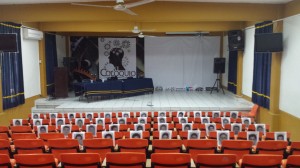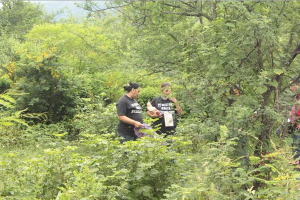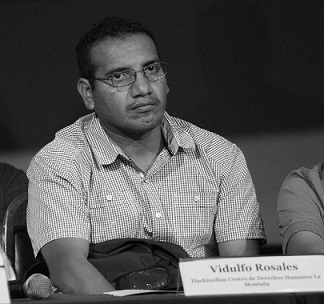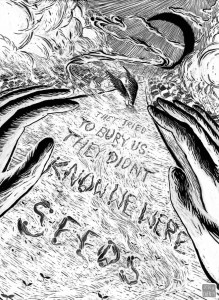San Cristóbal de las Casas, Chiapas. 10 December 2014.
By: Eugenia Gutiérrez
Radio Zapatista
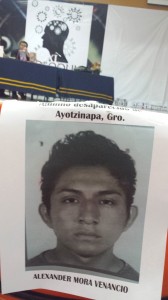
ALEXANDER
Allow me, young man, to address you with new words. Receive them with the freshness of your age. Welcome them without restraint. They are a brief greeting from someone who knows you without having met you, because she finds you in the memory of a wounded people, because she identifies you in the indignation of a planet united today in favor of its basic rights. They are, additionally, a request and a proposal.
You don’t know about me, so let me introduce myself. I am any Mexican mother of a student and teacher as determined and young as yourself, as enthusiastic about soccer as yourself. I am any teacher who is excited and nervous in front of fifty pairs of restless eyes like yours. I write to you from my privilege of someone who is fully alive in a graveyard nation. I sit down to write this message in a nation wounded by deadly governments. I write to you because your family and colleagues inform us that you have departed, that murderous hands have cut your life short. I hear in the voice of your father Ezequiel that you are already at the side of your mother Delia. I then read that your sisters and brothers weep. But, inexplicably, you are still here. As here as Chilango, as Julio César, as Daniel, as Gabriel and Jorge Alexis, as a woman, a man, and a sportsman who have presumably departed. Your words gather coherently in your colleagues’ facebooks and they inform us that you’re still here. As here as Andrés and Aldo, but no longer in so much pain. I watch your face looking at me from the raised arms in the avenues. I watch your face looking at me from the seats you occupy in auditoriums, conferences, and colloquiums. With you are forty-two friends who, with the force of silence, speak up one by one.
I want to ask you something, dear colleague. I write to you from my privilege as a professor who never slept on the floor to be able to study. You and I were born under the same sky, forged by the same history. For nineteen years, we walked without meeting on the same land, that of a tricolor banner that is losing its balance. On this land, with its majestic mountains and formerly crystal-clear waters, hundreds of thousands of other shattered lives pile up. You know it. Your colleagues know it too. Not for nothing did they choose to get an education in the schools where the poorest children study, those who can die incinerated. Not for nothing are all of you always remembering the fallen. But I write to you, Alexander, because an unexplainable fate chose you to shake up lethargies in this wounded Mexico. I want to ask you to help us sow in green and white all those disjointed lives in sierras that may once again become mothers, to refresh them in ancestral lakes, to pronounce them in immutable deserts, without screams. I dare ask you this because you’ve already met the fire, the air, and the water that will take you back to the land sowed by your father, because you move around nimbly in the stardust we once were, we are and will be again.
Finally, dear teacher, a proposal. I write it from my privilege as a woman who has not yet been raped, nor tortured, nor cut down in this region of femicides. I no longer speak to the youth; I speak to the man. I propose to you that we struggle together for the immediate reconstruction of our shredded rights. That you gracefully assume the role of inextinguishable light assigned to you by history, that you remain unscathed beside those who think you and feel you. I resort to your memory, Alexander, because remembering you reconstitutes us, strengthens us, because it rearranges our unhinged will and gives us new boundaries, because your friends call you “The Rock.” Let us gather around your presence so that the burdensome absences produced by this genocidal system may disappear.
Those are my request and my proposal. I bid you farewell without doing it and I prepare myself, with you, for whatever is to come. I hope my words do not bother you. Accept them now that we feel so determined to inhabit a country and a planet of well-deserved freedoms.
We do not forget, Alexander. Let us not forget.
With respect,
Eugenia.
